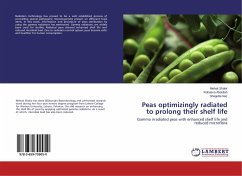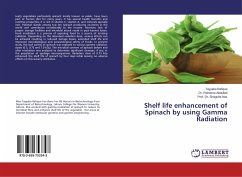
The Safety and Shelf life of Smoked Fish in Nigeria
Versandkostenfrei!
Versandfertig in 6-10 Tagen
39,99 €
inkl. MwSt.

PAYBACK Punkte
20 °P sammeln!
Smoked fish have traditionally been widely accepted and have broad international market appeal. The smoking of fish is a traditional practice of fish preservation in many countries, mainly in Africa. On the other hand, smoking as practiced in industrialized countries is not a form of preservation since potential invasion by pathogenic microorganisms is high at various processing stages. Thus, smoked fish should be handled with caution. Adequate preservation of smoked fish can be achieved by using little percentage of food graded preservatives, which include Potassium sorbate, Sodium chloride (...
Smoked fish have traditionally been widely accepted and have broad international market appeal. The smoking of fish is a traditional practice of fish preservation in many countries, mainly in Africa. On the other hand, smoking as practiced in industrialized countries is not a form of preservation since potential invasion by pathogenic microorganisms is high at various processing stages. Thus, smoked fish should be handled with caution. Adequate preservation of smoked fish can be achieved by using little percentage of food graded preservatives, which include Potassium sorbate, Sodium chloride (salt), Citric acid, Sodium benzoate, and Sodium metabisulphite. This Book introduces the preservative effects of smoking and preservatives which significantly reduced the total plate count in all samples of fish samples. The samples treated with Potassium sorbate showed the greatest reduction and maintained a low level throughout the period of storage. Potassium sorbate can be used as preservative in smoked tilapia and catfish without adversely affecting quality in terms of lipid oxidation, color, microbial and nutritional quality.












